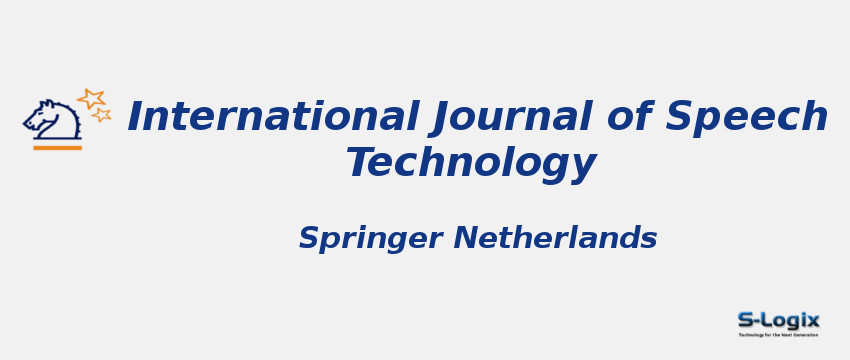Journal Home: Journal Homepage
Editor-in-Chief: Amy Neustein
Print ISSN: 13812416
Electronic ISSN: 15728110
Abstracting and Indexing: Scopus
Imapct Factor :
Subject Area and Category: Arts and Humanities, Language and Linguistics, Computer Science, Computer Vision and Pattern Recognition, Human-Computer Interaction, Software, Social Sciences, Linguistics and Language
Publication Frequency:
H Index: 43
Q1: Linguistics and Language
Q2:
Q3:
Q4:
Cite Score: 5.0
SNIP: 0.985
Journal Rank(SJR): 0.378
Latest Articles: Latest Articles in International Journal of Speech Technology
Guidelines for Authors: International Journal of Speech Technology Author Guidelines
Paper Submissions: Paper Submissions in International Journal of Speech Technology
Publisher: Springer Netherlands
Country: Netherlands
